Easter Week by Joyce Kilmer
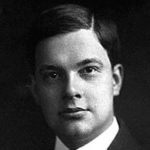
(In memory of Joseph Mary Plunkett)
("Romantic Ireland's dead and gone,
It's with O'Leary in the grave.")
William Butler Yeats.
Read Poem ("Romantic Ireland's dead and gone,
It's with O'Leary in the grave.")
William Butler Yeats.
0
September 1913 by William Butler Yeats

What need you, being come to sense,
But fumble in a greasy till
And add the halfpence to the pence
And prayer to shivering prayer, until
You have dried the marrow from the bone;
For men were born to pray and save:
Romantic Ireland’s dead and gone,
It’s with O’Leary in the grave.
Yet they were of a different kind,
The names that stilled your childish play,
They have gone about the world like wind,
But little time had they to pray
For whom the hangman’s rope was spun,
And what, God help us, could they save?
Read Poem But fumble in a greasy till
And add the halfpence to the pence
And prayer to shivering prayer, until
You have dried the marrow from the bone;
For men were born to pray and save:
Romantic Ireland’s dead and gone,
It’s with O’Leary in the grave.
Yet they were of a different kind,
The names that stilled your childish play,
They have gone about the world like wind,
But little time had they to pray
For whom the hangman’s rope was spun,
And what, God help us, could they save?
0
The Erotic Philosophers by Carolyn Kizer

It’s a spring morning; sun pours in the window
As I sit here drinking coffee, reading Augustine.
And finding him, as always, newly minted
From when I first encountered him in school.
Today I’m overcome with astonishment
At the way we girls denied all that was mean
In those revered philosophers we studied;
Who found us loathsome, loathsomely seductive;
Read Poem As I sit here drinking coffee, reading Augustine.
And finding him, as always, newly minted
From when I first encountered him in school.
Today I’m overcome with astonishment
At the way we girls denied all that was mean
In those revered philosophers we studied;
Who found us loathsome, loathsomely seductive;
0
Something in the Belly by Deena Metzger
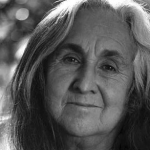
I wanted to have a poem and I was pregnant. I was very thin. As if I’d lived on air. A poet must be able to live on air, but a mother must not attempt it. My mother wanted me to buy a set of matching pots, Wearever aluminum, like the ones she had. They were heavy and had well fitting lids so my suppers wouldn’t burn. My husband wanted me to give dinner parties. John F. Kennedy was running for office.
I sensed danger. Kennedy wasn’t against the Bomb or for nuclear disarmament. I joined SANE at its inception. Also Concerned Scientists. I spoke with Linus Pauling and encouraged my husband to help his partner organize Physicians for Social Responsibility.
There was a baby in my belly. I wanted to write poems. I had a crazy idea that a woman could write a real novel, the kind that shook the world. I hallucinated that a woman could be a poet, but she would have to be free. I couldn’t imagine that freedom for myself even though I could see it in Isla Negra when I followed Pablo Neruda. I could see it in the way he walked. Even if he were walking inside a dictatorship, among guns, soldiers and spies, there was nothing between him and his vision. Anything he saw, he was able to take into himself–there was no sight, no image, no vision to which he didn’t feel entitled. In his heart, everything–everything–belonged to him. Pablo Neruda was–more than anything–a poet, and so he was an entitled man.
I was a woman and entitled to nothing. I had nothing except a husband, a rented house, a set of pots, living room furniture, a frenzy of obligations, credit cards, anxious relatives, too many acquaintances, a gift of future diaper service, two telephones, no time to read, a plastic wrapped cookbook of recipes gleaned from the pages of the New York Times, and a hunger, a terrible hunger for the unimaginable, unlimited freedom of being a poet, and a baby in my belly.
I would have called Pablo long distance if I had the courage, if I had the ability to speak Spanish fluently, if we had ever talked about real things. But, what would a man know about a baby in the belly? And what did it matter if there were to be one poet more or less in the world when so many in his country were dying?
I woke up one morning and thought–I can’t have this child. My husband said, “You’ll have to get a job after it’s born so we can buy a house. You’ll need an advanced degree so you can do something.” I thought, I can’t. I have to write poems. My mother found a crib. Someone painted it white. A friend sent a pastel mobile with tame wood animals. I thought about blue curtains, making bedspreads, and abortions.
Pablo was silent. He was walking so far from me, I couldn’t hear him. My husband objected to donating more free medical care to the Black Panthers. I tried to make dolmades from scratch and located grape leaves preserved in brine at the Boys’ Market twenty miles away. I organized a write-in campaign for peace to challenge JFK. My husband thought it would be nice to have teatime with the children and romantic dinners by ourselves. The new formula bottles lined up on the sink like tiny bombs. The U.S. was pursuing over ground testing; I was afraid the radiation would cross the milk barrier. I had a poem in me howling for real life but no language to write in. The fog came in thick, flapping about my feet like blankets unraveling. I became afraid to have a daughter.
I called Pablo Neruda in the middle of the night as he walked underwater by Isla Negra. He moved like a dream porpoise. He seemed pregnant with words. They came out of his penis in long miraculous strings. The sea creatures quivered with joy. I said, “Pablo, I want to know how to bear the child in my belly onto this bed of uranium and I want to know if a woman can a be a poet.” He was large as a whale. He drank the sea and spouted it in glistening odes, black and shiny. I said, “I can’t have this child,” and he laughed as if he had never done anything but carry and birth children.
Read Poem I sensed danger. Kennedy wasn’t against the Bomb or for nuclear disarmament. I joined SANE at its inception. Also Concerned Scientists. I spoke with Linus Pauling and encouraged my husband to help his partner organize Physicians for Social Responsibility.
There was a baby in my belly. I wanted to write poems. I had a crazy idea that a woman could write a real novel, the kind that shook the world. I hallucinated that a woman could be a poet, but she would have to be free. I couldn’t imagine that freedom for myself even though I could see it in Isla Negra when I followed Pablo Neruda. I could see it in the way he walked. Even if he were walking inside a dictatorship, among guns, soldiers and spies, there was nothing between him and his vision. Anything he saw, he was able to take into himself–there was no sight, no image, no vision to which he didn’t feel entitled. In his heart, everything–everything–belonged to him. Pablo Neruda was–more than anything–a poet, and so he was an entitled man.
I was a woman and entitled to nothing. I had nothing except a husband, a rented house, a set of pots, living room furniture, a frenzy of obligations, credit cards, anxious relatives, too many acquaintances, a gift of future diaper service, two telephones, no time to read, a plastic wrapped cookbook of recipes gleaned from the pages of the New York Times, and a hunger, a terrible hunger for the unimaginable, unlimited freedom of being a poet, and a baby in my belly.
I would have called Pablo long distance if I had the courage, if I had the ability to speak Spanish fluently, if we had ever talked about real things. But, what would a man know about a baby in the belly? And what did it matter if there were to be one poet more or less in the world when so many in his country were dying?
I woke up one morning and thought–I can’t have this child. My husband said, “You’ll have to get a job after it’s born so we can buy a house. You’ll need an advanced degree so you can do something.” I thought, I can’t. I have to write poems. My mother found a crib. Someone painted it white. A friend sent a pastel mobile with tame wood animals. I thought about blue curtains, making bedspreads, and abortions.
Pablo was silent. He was walking so far from me, I couldn’t hear him. My husband objected to donating more free medical care to the Black Panthers. I tried to make dolmades from scratch and located grape leaves preserved in brine at the Boys’ Market twenty miles away. I organized a write-in campaign for peace to challenge JFK. My husband thought it would be nice to have teatime with the children and romantic dinners by ourselves. The new formula bottles lined up on the sink like tiny bombs. The U.S. was pursuing over ground testing; I was afraid the radiation would cross the milk barrier. I had a poem in me howling for real life but no language to write in. The fog came in thick, flapping about my feet like blankets unraveling. I became afraid to have a daughter.
I called Pablo Neruda in the middle of the night as he walked underwater by Isla Negra. He moved like a dream porpoise. He seemed pregnant with words. They came out of his penis in long miraculous strings. The sea creatures quivered with joy. I said, “Pablo, I want to know how to bear the child in my belly onto this bed of uranium and I want to know if a woman can a be a poet.” He was large as a whale. He drank the sea and spouted it in glistening odes, black and shiny. I said, “I can’t have this child,” and he laughed as if he had never done anything but carry and birth children.
0
Ancestral Lines by David Ferry

It’s as when following the others’ lines,
Which are the tracks of somebody gone before,
Leaving me mischievous clues, telling me who
They were and who it was they weren’t,
And who it is I am because of them,
Or, just for the moment, reading them, I am,
Although the next moment I’m back in myself, and lost.
My father at the piano saying to me,
“Listen to this, he called the piece Warum?”
And the nearest my father could come to saying what
He made of that was lamely to say he didn’t,
Schumann didn’t, my father didn’t, know why.
Read Poem Which are the tracks of somebody gone before,
Leaving me mischievous clues, telling me who
They were and who it was they weren’t,
And who it is I am because of them,
Or, just for the moment, reading them, I am,
Although the next moment I’m back in myself, and lost.
My father at the piano saying to me,
“Listen to this, he called the piece Warum?”
And the nearest my father could come to saying what
He made of that was lamely to say he didn’t,
Schumann didn’t, my father didn’t, know why.
0
An Ode on the Popular Superstitions of the Highlands of Scotland, Considered as the Subject of Poetry by William Collins
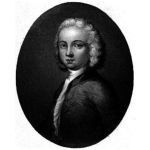
Home, thou return'st from Thames, whose Naiads long
Have seen thee ling'ring, with a fond delay,
Mid those soft friends, whose hearts, some future day,
Shall melt, perhaps, to hear thy tragic song.
Go, not unmindful of that cordial youth,
Whom, long endear'd, thou leav'st by Lavant's side;
Together let us wish him lasting truth,
And joy untainted with his destined bride.
Go! nor regardless, while these numbers boast
My short-lived bliss, forget my social name;
But think far off how, on the southern coast,
I met thy friendship with an equal flame!
Fresh to that soil thou turn'st, whose ev'ry vale
Shall prompt the poet, and his song demand:
To thee thy copious subjects ne'er shall fail;
Read Poem Have seen thee ling'ring, with a fond delay,
Mid those soft friends, whose hearts, some future day,
Shall melt, perhaps, to hear thy tragic song.
Go, not unmindful of that cordial youth,
Whom, long endear'd, thou leav'st by Lavant's side;
Together let us wish him lasting truth,
And joy untainted with his destined bride.
Go! nor regardless, while these numbers boast
My short-lived bliss, forget my social name;
But think far off how, on the southern coast,
I met thy friendship with an equal flame!
Fresh to that soil thou turn'st, whose ev'ry vale
Shall prompt the poet, and his song demand:
To thee thy copious subjects ne'er shall fail;
0
A Salutation by Louise Imogen Guiney
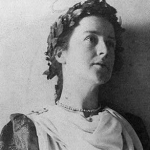
High-hearted Surrey! I do love your ways,
Venturous, frank, romantic, vehement,
All with inviolate honor sealed and blent,
To the axe-edge that cleft your soldier-bays:
I love your youth, your friendships, whims, and frays;
Your strict, sweet verse, with its imperious bent,
Heard as in dreams from some old harper’s tent,
And stirring in the listener’s brain for days.
Good father-poet! if to-night there be
At Framlingham none save the north-wind’s sighs,
No guard but moonlight’s crossed and trailing spears,
Smile yet upon the pilgrim named like me,
Close at your gates, whose fond and weary eyes
Sought not one other down three hundred years!
Read Poem Venturous, frank, romantic, vehement,
All with inviolate honor sealed and blent,
To the axe-edge that cleft your soldier-bays:
I love your youth, your friendships, whims, and frays;
Your strict, sweet verse, with its imperious bent,
Heard as in dreams from some old harper’s tent,
And stirring in the listener’s brain for days.
Good father-poet! if to-night there be
At Framlingham none save the north-wind’s sighs,
No guard but moonlight’s crossed and trailing spears,
Smile yet upon the pilgrim named like me,
Close at your gates, whose fond and weary eyes
Sought not one other down three hundred years!
0
America Politica Historia, in Spontaneity by Gregory Corso
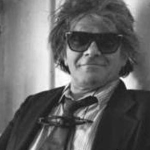
O this political air so heavy with the bells
and motors of a slow night, and no place to rest
but rain to walk—How it rings the Washington streets!
The umbrella’d congressmen; the rapping tires
of big black cars, the shoulders of lobbyists
caught under canopies and in doorways,
and it rains, it will not let up,
and meanwhile lame futurists weep into Spengler’s
Read Poem and motors of a slow night, and no place to rest
but rain to walk—How it rings the Washington streets!
The umbrella’d congressmen; the rapping tires
of big black cars, the shoulders of lobbyists
caught under canopies and in doorways,
and it rains, it will not let up,
and meanwhile lame futurists weep into Spengler’s
0
The Curator by Miller Williams

We thought it would come, we thought the Germans would come,
were almost certain they would. I was thirty-two,
the youngest assistant curator in the country.
I had some good ideas in those days.
Well, what we did was this. We had boxes
precisely built to every size of canvas.
We put the boxes in the basement and waited.
When word came that the Germans were coming in,
Read Poem were almost certain they would. I was thirty-two,
the youngest assistant curator in the country.
I had some good ideas in those days.
Well, what we did was this. We had boxes
precisely built to every size of canvas.
We put the boxes in the basement and waited.
When word came that the Germans were coming in,
0
The Door by Robert Creeley
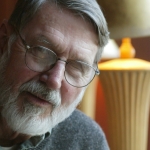
for Robert Duncan It is hard going to the door
cut so small in the wall where
Read Poem cut so small in the wall where
0
Elegy by Anne Stevenson

Whenever my father was left with nothing to do —
waiting for someone to 'get ready',
or facing the gap between graduate seminars
and dull after-suppers in his study
grading papers or writing a review —
he played the piano.
I think of him packing his lifespan
carefully, like a good leather briefcase,
Read Poem waiting for someone to 'get ready',
or facing the gap between graduate seminars
and dull after-suppers in his study
grading papers or writing a review —
he played the piano.
I think of him packing his lifespan
carefully, like a good leather briefcase,
0
I, Maximus of Gloucester, to You by Charles Olson

Off-shore, by islands hidden in the blood
jewels & miracles, I, Maximus
a metal hot from boiling water, tell you
what is a lance, who obeys the figures of
the present dance
1
the thing you’re after
may lie around the bend
Read Poem jewels & miracles, I, Maximus
a metal hot from boiling water, tell you
what is a lance, who obeys the figures of
the present dance
1
the thing you’re after
may lie around the bend
0
My Sad Self by Allen Ginsberg

To Frank O’Hara Sometimes when my eyes are red
I go up on top of the RCA Building
Read Poem I go up on top of the RCA Building
0
The Tongues We Speak by Patricia Goedicke

I have arrived here after taking many steps
Over the kitchen floors of friends and through their lives.
The dun-colored hills have been good to me
And the gold rivers.
I have loved chrysantheumums, and children:
I have been grandmother to some.
In one pocket I have hidden chocolates from you
And knives.
Read Poem Over the kitchen floors of friends and through their lives.
The dun-colored hills have been good to me
And the gold rivers.
I have loved chrysantheumums, and children:
I have been grandmother to some.
In one pocket I have hidden chocolates from you
And knives.
0
Deep South by Thomas McGrath
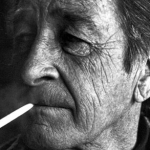
Baton Rouge, 1940 These are savannas bluer than your dreams
Where other loves are fashioned to older music,
Read Poem Where other loves are fashioned to older music,
0
Don Juan: Canto 11 by Lord Byron (George Gordon)

I
When Bishop Berkeley said "there was no matter,"
And proved it—'twas no matter what he said:
They say his system 'tis in vain to batter,
Too subtle for the airiest human head;
And yet who can believe it! I would shatter
Gladly all matters down to stone or lead,
Or adamant, to find the World a spirit,
And wear my head, denying that I wear it.
II
What a sublime discovery 'twas to make the
Universe universal egotism,
That all's ideal—all ourselves: I'll stake the
World (be it what you will) that that's no schism.
Read Poem When Bishop Berkeley said "there was no matter,"
And proved it—'twas no matter what he said:
They say his system 'tis in vain to batter,
Too subtle for the airiest human head;
And yet who can believe it! I would shatter
Gladly all matters down to stone or lead,
Or adamant, to find the World a spirit,
And wear my head, denying that I wear it.
II
What a sublime discovery 'twas to make the
Universe universal egotism,
That all's ideal—all ourselves: I'll stake the
World (be it what you will) that that's no schism.
0
Epistles to Several Persons: Epistle II: To a Lady on the Characters of Women by Alexander Pope

Nothing so true as what you once let fall,
"Most Women have no Characters at all."
Matter too soft a lasting mark to bear,
And best distinguish'd by black, brown, or fair.
How many pictures of one nymph we view,
All how unlike each other, all how true!
Arcadia's Countess, here, in ermin'd pride,
Read Poem "Most Women have no Characters at all."
Matter too soft a lasting mark to bear,
And best distinguish'd by black, brown, or fair.
How many pictures of one nymph we view,
All how unlike each other, all how true!
Arcadia's Countess, here, in ermin'd pride,
0
Extempore Effusion upon the Death of James Hogg by William Wordsworth

When first, descending from the moorlands,
I saw the Stream of Yarrow glide
Along a bare and open valley,
The Ettrick Shepherd was my guide.
When last along its banks I wandered,
Through groves that had begun to shed
Their golden leaves upon the pathways,
Read Poem I saw the Stream of Yarrow glide
Along a bare and open valley,
The Ettrick Shepherd was my guide.
When last along its banks I wandered,
Through groves that had begun to shed
Their golden leaves upon the pathways,
0
Fanny by Carolyn Kizer

Part Four of “Pro Femina” At Samoa, hardly unpacked, I commenced planting,
When I’d opened the chicken crates, built the Cochins a coop.
Read Poem When I’d opened the chicken crates, built the Cochins a coop.
0
The Foggy, Foggy Blue by Delmore Schwartz
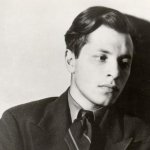
When I was a young man, I loved to write poems
And I called a spade a spade
And the only only thing that made me sing
Was to lift the masks at the masquerade.
I took them off my own face,
I took them off others too
And the only only wrong in all my song
Was the view that I knew what was true.
Read Poem And I called a spade a spade
And the only only thing that made me sing
Was to lift the masks at the masquerade.
I took them off my own face,
I took them off others too
And the only only wrong in all my song
Was the view that I knew what was true.
0